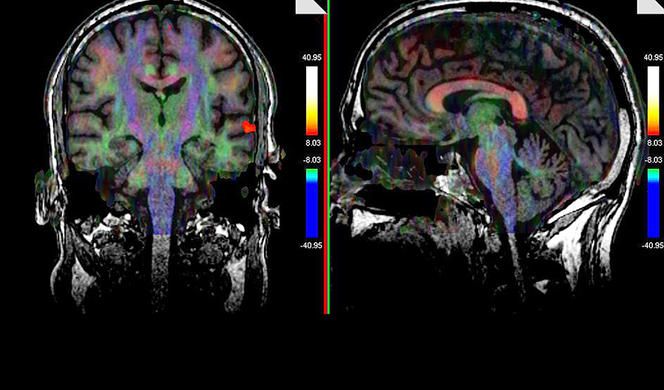When music meets science (and our brain)
To write this article, I haved listen to a french Podcast called Science, Music and Emotions and supported by Podcast Science.
I like to help you to understand that art and science are not incompatible. Quite the opposite. They are the same... Both allow us to "explore life and understand what we are".
Music and emotions
Music leaves no one indifferent, music gives emotions... Have you ever noticed that when we are sad we listen to certain types of music, and when we are happy we listen to others? And that sometimes even... music has the gift of awakening emotions in us: helps us to recover energy. Take the test, when you're sad, to listen to Indian music from Bollywood movies! Your sadness is likely to fly away at the same time as your whole body, which will want to dance!
That's why music is used in films (to accentuate the romantic or dramatic side of a scene) for example.
Music has existed since the dawn of time. It would seem that the first musical instrument (a flute made of vulture bones) dates back more than 35,000 years and was found in Germany. Like what, of all civilizations, man has been rocked by music. Besides, is it harmless if mothers sing lullabies to their child to calm them down or put them to sleep? Probably not, probably not. Mothers instinctively discovered that music has a direct impact on their child. An impact in physiological reality.
And yes, it's like love... Everything is science!
This is why today there is therapy by music, called Music Therapy, which relieves psychological suffering and increases the quality of life of patients!
The music and the brain
Book: "This is your brain on Music"
Music creates emotions while having a powerful effect on your brain. Indeed, it stimulates the plasticity of the brain and reinforces, if you can put it that way, the "dialogue" between brain areas.
And the music doesn't stop there... Music is capable of curing memory problems. Motor skills. And even language.
Daniel Levitin, Professor at McGill University in Canada (and of course, a musician) wrote a book called This is your brain on Music. He explains that in the USA, people buy more music (concerts or CDs for example) than medicines. He tried to answer this question in his book: Why people spend more on music than on drugs, and he realized that by analyzing this question, we can unveil some of the very essence of human nature…
At the neurobiological level, listening, playing or composing music involves almost every part of the brain that we know... even if the popular idea is that music (and art in general) is treated by the right hemisphere.
In reality, music is about the brain and neurons as a whole! And as this charming university professor would say: Music causes in our brain a kind of choreography of neurotransmitters.
Music also cares for memory... Music helps people with Alzheimer's disease! Isn't that incredible? According to Emmanuel Bigand, professor of cognitive psychology at the University of Burgundy Our brain interprets it at a speed of 250 thousandths of a second, during which a true neural symphony is played. Listening to music causes the activation of neural circuits by producing dopamine.
I discovered that patients with Alzheimer's disease manage to learn new songs... It reassures me for my future (probably close), I will end my life in song!

This picture has been taken in the CNRS file, details of which can be found in the sources.
The legend of this image is as follows: "Sound is first processed by the auditory system (in red on this IRM), then by the cerebral areas involved in memory, emotions, motor skills (music makes us want to beat our feet), or language".
Amusia
According to Wikipedia,
Amusia is a musical disorder that appears mainly as a defect in processing pitch but also encompasses musical memory and recognition.[1] Two main classifications of amusia exist: acquired amusia, which occurs as a result of brain damage, and congenital amusia, which results from a music-processing anomaly present since birth.
It is a disorder that is not well known but affects about 5% of the population. But for the rest of the world... For 95% of the rest of the population, music generates emotions.
Music and scientific experience.
Discovering musicology
According to Google Definition, musicology is…
The study of music as an academic subject, as distinct from training in performance or composition; scholarly research into music.
But the French Larousse told us a deeper definiton :
Musicology is…
A discipline that studies everything related to music in a scientific and historical way. (The composers and their works constitute the essence of his subject matter, divided into the following subjects: biography, study of forms, birth and evolution of styles, analysis, organology, bibliography).
Scientists study and dissect music, musical instruments, the sounds they produce and their subtleties. Besides, do you know that studying music scientifically has a name? It's so, the musicology.
I would like to conclude by saying that listening to music is not wrong. Quite the contrary! Sing my friends, practice an instrument if you can, and stimulate your brain to the maximum!
Music just does so much ..we can't even begin to underestimate the power of music.. Very nice write up I must say
Well done! This post has received a 5.00 % upvote from @litasio thanks to: @steemstem-bot. Whoop!
If you would like to delegate to the @LitasIO you can do so by clicking on the following link: 10SP